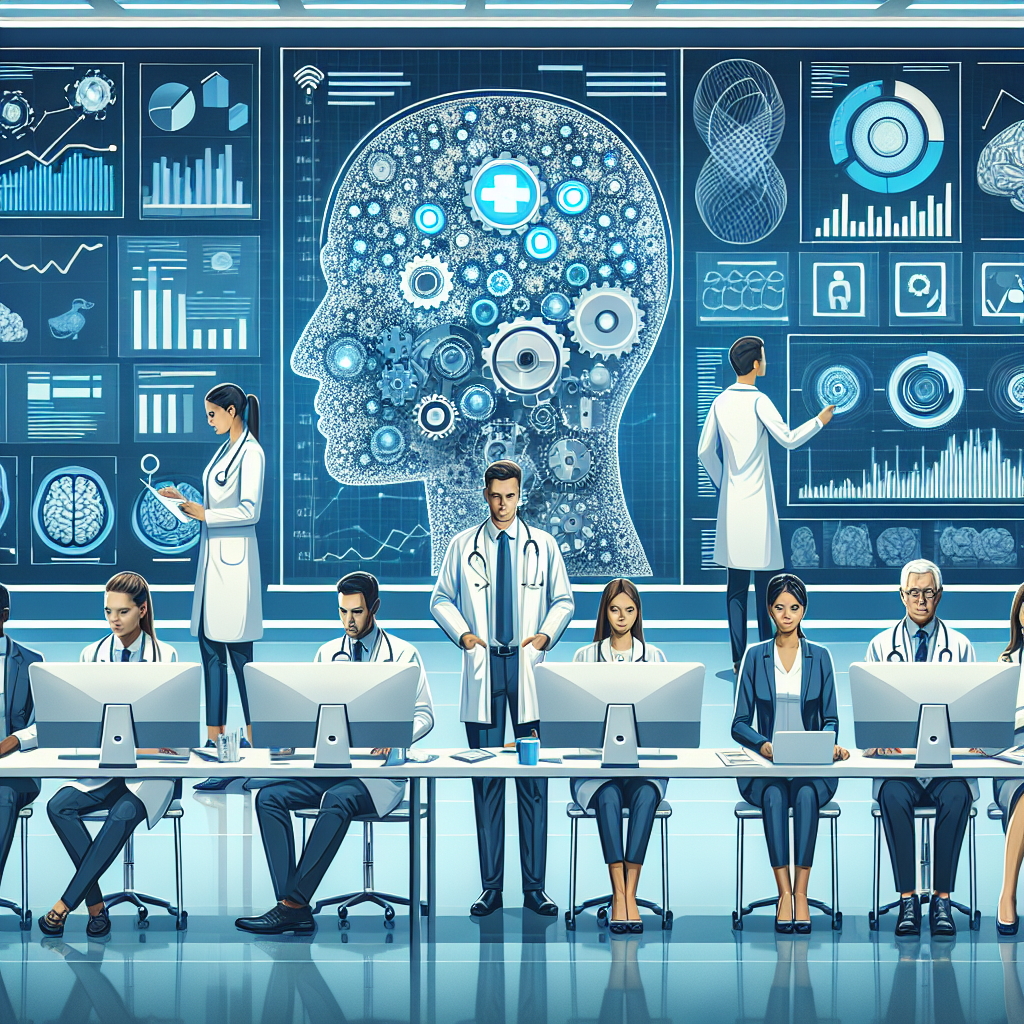AI Integration in Health Data Analytics
Introduction
Artificial Intelligence (AI) is revolutionizing the healthcare industry by enhancing the way data is analyzed and utilized for improving patient care, treatment outcomes, and operational efficiencies. With the vast amount of data generated in healthcare settings, AI tools can help in processing and analyzing this data to derive valuable insights that can drive informed decision-making and personalized patient care.
Health data analytics involves the collection, storage, and analysis of healthcare data to identify patterns, trends, and correlations that can be used to improve patient outcomes, optimize workflows, and reduce costs. AI technologies such as machine learning, natural language processing, and deep learning have the capability to analyze large data sets at a much faster pace and with greater accuracy than human analysts.
AI Integration in Health Data Analytics
1. Predictive Analytics: One of the key applications of AI in health data analytics is predictive analytics. By analyzing historical data, AI algorithms can predict future health outcomes, identify high-risk patients, and recommend personalized treatment plans. This can help healthcare providers in proactively managing chronic conditions, reducing hospital readmissions, and improving overall patient care.
2. Disease Diagnosis: AI tools can assist healthcare providers in diagnosing diseases more accurately and quickly by analyzing medical images, lab results, and patient history. For example, AI algorithms can analyze radiology images to detect abnormalities or patterns that may be missed by human radiologists, leading to early detection and treatment of diseases such as cancer.
3. Drug Discovery: AI is also being used in drug discovery and development to speed up the process of identifying potential drug candidates, predicting drug interactions, and optimizing treatment regimens. By analyzing molecular data, AI algorithms can identify new drug targets, predict the efficacy of existing drugs, and personalize treatment plans based on a patient’s genetic makeup.
4. Personalized Medicine: AI technologies can help in delivering personalized medicine by analyzing patient data, including genetic information, medical history, and lifestyle factors, to develop tailored treatment plans. This can lead to better treatment outcomes, reduced side effects, and improved patient satisfaction.
5. Workflow Optimization: AI can streamline healthcare workflows by automating repetitive tasks, such as data entry, scheduling appointments, and billing processes. This can free up healthcare providers to focus on patient care, reduce administrative burden, and improve overall efficiency.
6. Real-time Monitoring: AI tools can enable real-time monitoring of patient health data, allowing healthcare providers to track vital signs, detect early warning signs of deterioration, and intervene proactively to prevent adverse events. This can improve patient outcomes, reduce hospitalizations, and lower healthcare costs.
FAQs
Q: Is AI replacing human healthcare providers?
A: AI is not meant to replace human healthcare providers but to augment their capabilities and enhance patient care. AI tools can assist healthcare providers in making more informed decisions, diagnosing diseases more accurately, and delivering personalized treatment plans.
Q: How secure is health data when using AI technologies?
A: Health data security is a top priority in healthcare settings, and AI technologies are designed to comply with strict data protection regulations, such as HIPAA. Healthcare organizations should implement robust data encryption, access controls, and audit trails to ensure the confidentiality and integrity of patient data.
Q: How can healthcare providers ensure the accuracy and reliability of AI algorithms?
A: Healthcare providers should validate AI algorithms by comparing their predictions with clinical outcomes, conducting regular audits, and involving healthcare professionals in the development and testing of AI tools. Continuous monitoring and feedback are essential to ensure the accuracy and reliability of AI algorithms.
Q: What are the ethical considerations when using AI in health data analytics?
A: Ethical considerations in AI healthcare applications include patient consent, data privacy, transparency in AI algorithms, bias detection, and accountability for AI decisions. Healthcare organizations should establish clear guidelines and protocols to address these ethical issues and ensure the responsible use of AI technologies.
Conclusion
AI integration in health data analytics is transforming the healthcare industry by enabling healthcare providers to leverage the power of data to improve patient outcomes, optimize workflows, and deliver personalized care. With the advancements in AI technologies, healthcare organizations can harness the potential of big data to drive innovation, enhance decision-making, and ultimately, improve the quality of care for patients. As AI continues to evolve, healthcare providers must stay informed about the latest trends and best practices in AI integration to maximize the benefits of this transformative technology.

